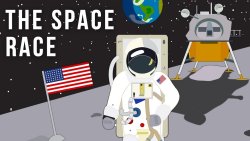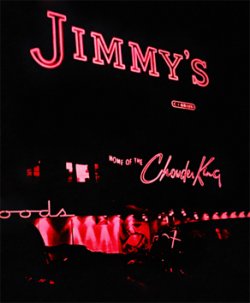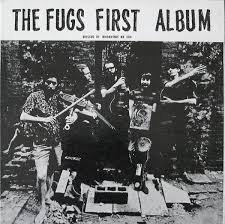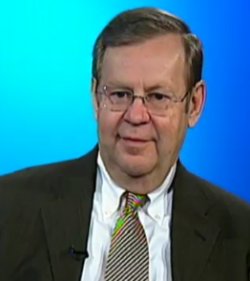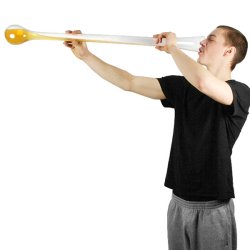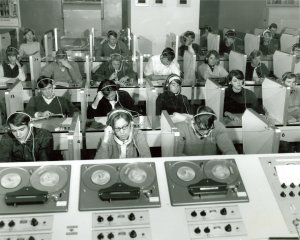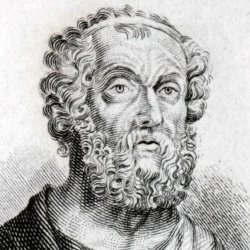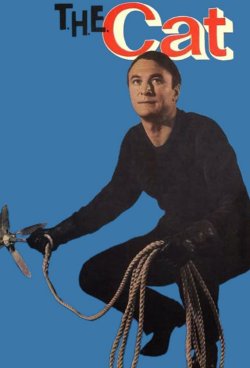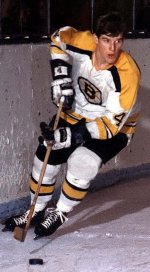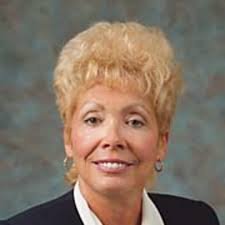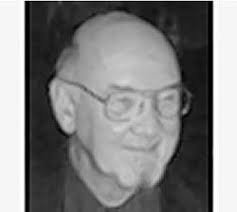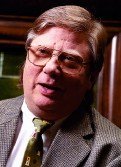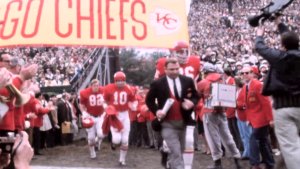A lot of debate. A little class time. Continue reading
Debate: If you need a primer about intercollegiate debate in this era, you can find it here.
I learned that my partner, Lee Hess, was in ZBT, the Jewish fraternity. He had attended New Trier High in the Chicago area. He claimed that his father was a “cowboy”, by which he meant that he traded futures on livestock prices. Lee had contacts all over the country. He was the complete opposite of me, a stranger in every town save one.
One tournament that I remember rather vividly was at Northwestern. I am pretty sure that we unveiled the moon case there. We ended up with a 1-7 record. My recollection of that “1” is not clear. Maybe we won one affirmative, but I suspect that the moon case exploded on the launch pad.
Jeff chased down the judges of a few of our affirmative rounds to ask them whether we lost the debate on topicality or on one of the substantive issues. I don’t remember what the answer was. It was inconceivable that we would run such a squirrelly case at the district tournament in March. So, I think that we decided to put our effort into patching up the holes in the case1 that Lee and his partner had run in the first semester. I don’t recall the specifics, but I know that I learned a lot.
The process of debating at the varsity level was a more striking change for me than the actual debates. In high school and in the first semester at U-M we rode to tournaments in cars and/or buses. We always ate at places that emphasized quantity per dollar rather than quality or exotic tastes. We stayed in roadside ma and pa motels or at second- or third-rate hotels.
Early in 1967 Lee and I flew to Boston with Jeff Sampson for the annual debate tournament at Harvard. I had only flown on planes a very few times. I cannot remember previous flights except the ones to and from KC for the holiday break between semesters, and those were both using the program prevalent in that era by which students could fly standby for half-price.
Our first supper on this trip was at the legendary Jimmy’s Harborside in Boston. The three of us took a taxi from Cambridge. I suspect that this was the first time that I had ridden in a taxi.
I know for sure that this was the first time that I had ever eaten lobster. Jeff and Lee pressured me to try it. It seemed to me at the time (and ever since) that it was pretty much a tasteless vehicle for delivering melted butter to one’s mouth. Also, an excessive amount of effort was required to extract the meat. I did get to wear a bib for the first time since I learned to walk.
I am not sure where Jeff stayed, but Lee and I stayed in the dorm at Harvard. It in no way reminded me of Allen Rumsey House. It was a suite; each student had his own bedroom. One or two of the residents were present; the others were still on some sort of break. Lee and I stayed in an empty suite that featured—get this!—a loft with an extra bed. I vaguely recall that one of the missing suite-mates was the son of a U.S. Senator.
On the second night Lee arranged for a young lady whom he already knew from somewhere to visit us in the dorm. Lee produced a couple of bottles of wine and fed Frank Zappa and Fugs albums to the record player. I made myself as scarce as I could without leaving the room—where would I go? Pretty soon Lee and she went up to the loft, where they stayed until morning.
At that point we had debated seven rounds, four on the negative and three on the affirmative. I had no way to judge how well we were doing, but we had faced some pretty good teams. Since the last six rounds were power-matched, that is usually a good sign. Our opponent was the University of Texas, a pretty good team.
The girl was gone when I woke up. Lee was a mess. If we had been on the negative, we probably would have just forfeited. As 1A, Lee just had to read the constructive speech. The rebuttal would definitely be difficult, but Lee was determined to give it a try. We removed a sentence or two from the 1AC, but he still could not quite finish what was left in ten minutes. Nevertheless, we were still in contention until Lee’s rebuttal, which was unspeakably bad. I tried to pull it out in the last rebuttal, but it was hopeless. For the first time in my life I mentally blamed my partner for losing a debate. I only did it one other time.
I am uncertain how important that debate was. Both teams were either 4-3 or 5-2 going into the debate. If we were 5-2, it probably cost us qualifying for the octafinals. If we were 4-3, it only kept us from having a winning record.
Jeff did not yell at Lee, at least not in my presence.
I don’t remember when it happened, but at some point I got to watch Northwestern’s team of David Zarefsky and Mike Denger debate in an elimination round against Georgetown, another national power. I was very impressed with all four debaters, but especially Denger, who had won the NDT the year before. It gave me something to aspire to.
At least once Dr. Colburn drove us on a debate trip. He liked to stop at Win Schuler’s restaurant, an institution in Michigan. Their specialty was prime rib. It was pretty late, and the place was almost empty by the time that we were finishing supper. Dr. Colburn had ordered a yard of beer, in which he had made little progress. A guy at the next table was giving him a good-natured hard time about it. Somehow a wager was made as to whether Dr. Colburn could finish the whole yard. Dr. Colburn promised that if he couldn’t, he would stand on his chair and sing “The Sweetheart of Sigma Chi.” The other guy offered to stand on his chair and sing “God Bless America” if Dr. Colburn finished it. Dr. C., not that far removed from his fraternity days at Sigma Chi at the University of Indiana, had little difficulty, and the other fellow paid off. We all applauded his performance.
Dr. Colburn never considered asking Lee or me to drive us back to Ann Arbor, but we made it in one piece.
Lee and I went 4-4 at districts with twelve ballots out of twenty-four. We had ascended to mediocrity.
Classes: My recollection is that I attended nine or ten debate tournaments during the semester. We ordinarily left Wednesday afternoon or early on Thursday and returned late on Sunday. So, I missed a lot of classes.
I remember almost nothing about Math 196. I attended less than half the classes. I don’t remember the teacher at all. I kept up with the textbook by studying for a couple of hours per week early in the morning. I ended up with a B, which was something of a triumph considering how little effort I expended.
Russian was a big problem. I had no time to go to the Language Lab to improve my listening skills, which were negligible. Furthermore, I had missed so many classes that I had lost my ear for the language.
After acing the class in the first semester, I did very poorly on the midterm in the second. We were required to listen to a paragraph read by one of the teachers and then answer questions about it. The fact that I could not understand the reading and therefore could not answer the questions contributed to my panic on the grammar section of the test as well. I knew enough to do pretty well, but I choked.
I went to see the teacher. His desk was in the Frieze Building, right next to the desk of Mrs. Rado, my teacher from the fall semester. I explained to him about my attendance at the debate tournaments. He knew that I had done well in the first semester, but he was not too sympathetic about the way that I set my priorities. I did pretty well on the final. I was hoping for a B, but I only got a C.
My other big problem was Chemistry 106. I had taken 103 in the first semester; the continuation course was 105. My faculty adviser insisted that this was beneath me, and he signed me up for 106, the continuation class for 104. I never really got on track in this class. I scored an abysmal 38% on the midterm. Believe it or not, my score was only a little below average.
The worst part was that my labs were on Thursdays. After one of the few recitation session that I had attended, I approached my teacher, Ms. Koljenin, and told her that I had missed six chem labs. She denied that I had done so.
I patiently explained that because I represented the university at intercollegiate debate tournaments, I had indeed missed six labs. She asked me my name and looked it up in her grade book.
“You’ve missed six labs!” she exclaimed.
I asked her if I could make them up over the Easter break. She said that would be impossible. I then asked if the lab would be open. She affirmed that it would. Before she could say anything more, I asked if she would allow me to try to make up as many as I could over the break. She relented.
Most of the experiments involved identifying an unknown sample by performing various tests on it. I got my samples and made every effort to do all the experiments. However, I am really bad at this sort of thing. My samples would not cooperate. For example, if I was supposed to judge the color as yellow or green, it would appear brown. I did all six experiments, but if I got half of them right, I would be surprised.
I studied diligently for the final. I did much better than on the midterm. I got a C in the class. I was just happy that I would not need to take any more science classes.
Fortunately, my fourth class was Greek 101. No one else in the class had ever taken Greek. I had four semesters in high school with a very good teacher. In a class in the third week I was called on to read—in Greek—a few sentences that we had never seen. I did, with good pronunciation and very few pauses. I then translated them without any difficulty. The next day fully half of the students were missing from the class. In any case, I cruised to an A.
In sum, I got an A, a B, and two C’s. Not good, but not a catastrophe. I certainly did not want to explain a D to my parents, who were, after all, footing the bill.
I learned that semester that I needed to be more careful about selecting my classes. If my chem labs had been on Monday or Tuesday, I probably would have gotten a B in chemistry. If I had also insisted on taking 105 instead of 106, I might have gotten an A.
Although I enjoyed Russian a lot, I realized that I needed to avoid languages that required listening skills. They just required more time than I could afford to devote.
I also realized that I needed to avoid taking classes that required papers. I may have dodged a bullet by missing out on Great Books.
My phys ed class, which was held in Waterman Gymnasium, was in badminton. I learned very little from the instructor. He explained the rules and then basically let us play. One guy, who was an accomplished tennis player, was much better than anyone else. My recollection is that I was a distant second, but that might just be arrogance.
We had two tournaments. In the singles tournament I drew the tennis player in the first round, and he crushed me. However, in the doubles my partner and I did not face him until the finals. By picking on his hapless partner we actually gave them a pretty good game, but we lost.
Allen Rumsey House: Charlie Delos2 and I shared room 315 for the second semester. We got along well enough that we planned to share a room for sophomore year as well.
By the second semester I knew everyone on the floor pretty well and most people in the house. The people who had pledged fraternities in the first semester were seldom seen in the second. They mostly hung around at their frat house.
At some point I learned how to juggle. So did quite a few other people, including Dave Zuk. I remember him practicing throwing three balls against the eastern wall in 314.
When we could not get four for bridge, we played hearts or spades. Paul Stoner was the worst hearts player ever. He was fascinated with “shooting the moon”—taking tricks containing all thirteen hearts and the queen of spades. Sometimes he would try for it even after one of the other players had taken a heart. This became known as a “Stoner run”.
On Friday nights the television set in the separate TV room was set to NBC to watch the back-to-back acronym shows, “The Man from U.N.C.L.E.” and “T.H.E. Cat”. I wasn’t much invested in the latter, but a bunch of adventurous guys, including Dave Zuk, actively emulated the show’s hero, played by Robert Loggia. They got into various locked university buildings either through the network of tunnels that hey had mapped or by climbing the drain pipes to gain access through unlocked windows on higher floors. Unfortunately, one of these guys was seriously injured when a drain pipe came loose and he fell a few stories to the ground.
Incidentally, on these Friday nights the guys in the game room were usually watching an NHL game. I had no interest whatever in hockey. I was a big fan in general of many sports—I had religiously watched ABC’s Wide World of Sports as a kid. However, I could not follow the puck very well on the black & white television.
This changed after the first time that I saw Bobby Orr on the ice. Over the next three years I watched him as often as I could. If the Bruins were not on, I still had no interest in the sport.
AR held elections for all officers in the spring. Only students who were planning on returning to the dorm the next year were allowed to vote. I decided not to run for secretary. Instead I ran unopposed for the office of the editor of the house’s newsletter, Rumsey Rumors. I think that there had only been one issue all year, but I planned to take the job at least a little more seriously.
I am a little confused about who ran for president. If Ken Nelson was not the president during my freshman year, then he ran unopposed and won. At the time there was a rule that one could be president only for one year.
1. In his basement Lee recently found a typed copy of the constructive speech that he used when debating with me in the spring of 1967. It must have been the very speech that he read in that infamous eighth round at Harvard. It called for the U.S. to abandon the commitment to Taiwan (specifically to Chiang Kai-Shek), to recognize Communist China, and to terminate the trade embargo. I have no recollection of running this case. I must not have done much research.
2. I found this webpage devoted to Charlie Delos.

